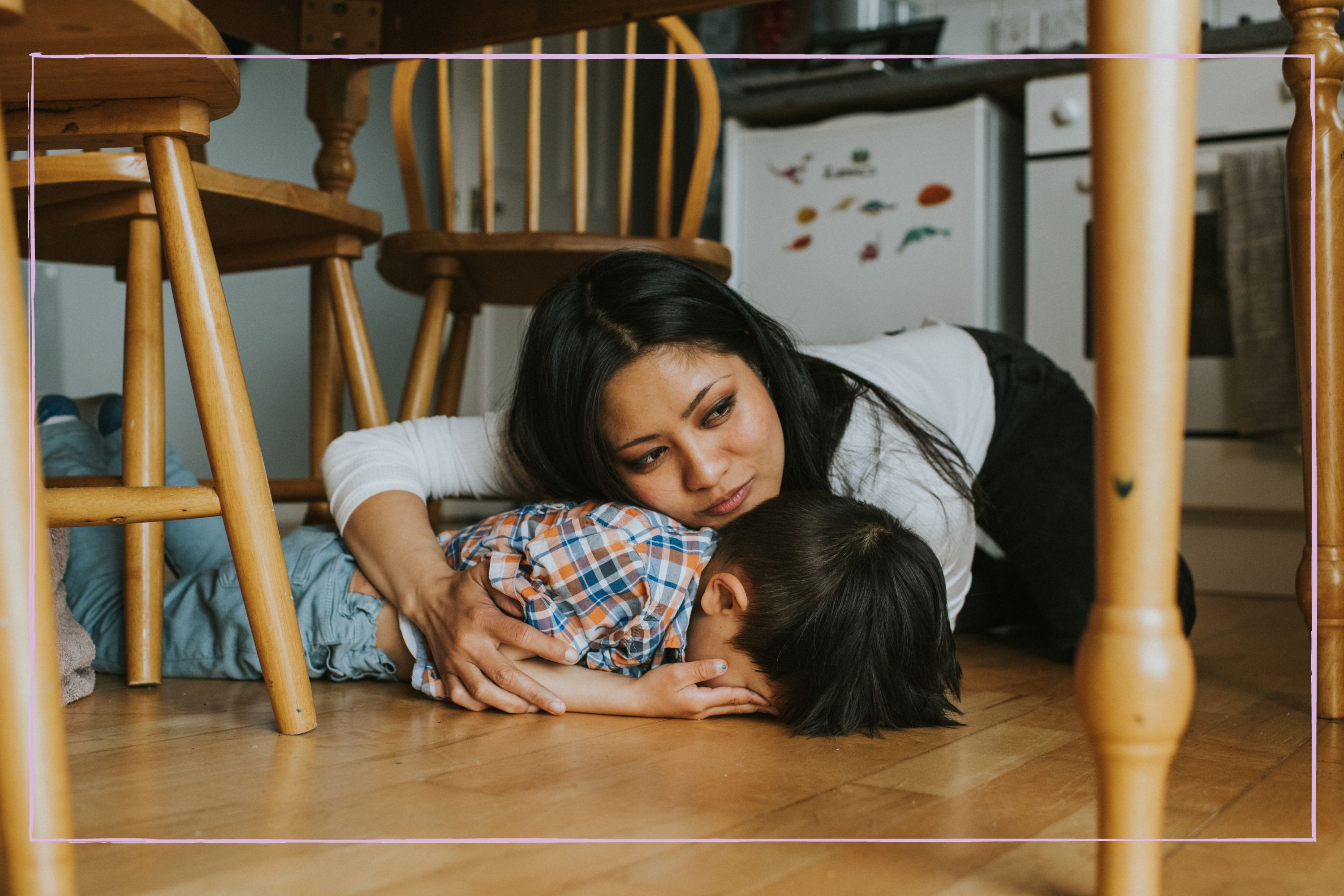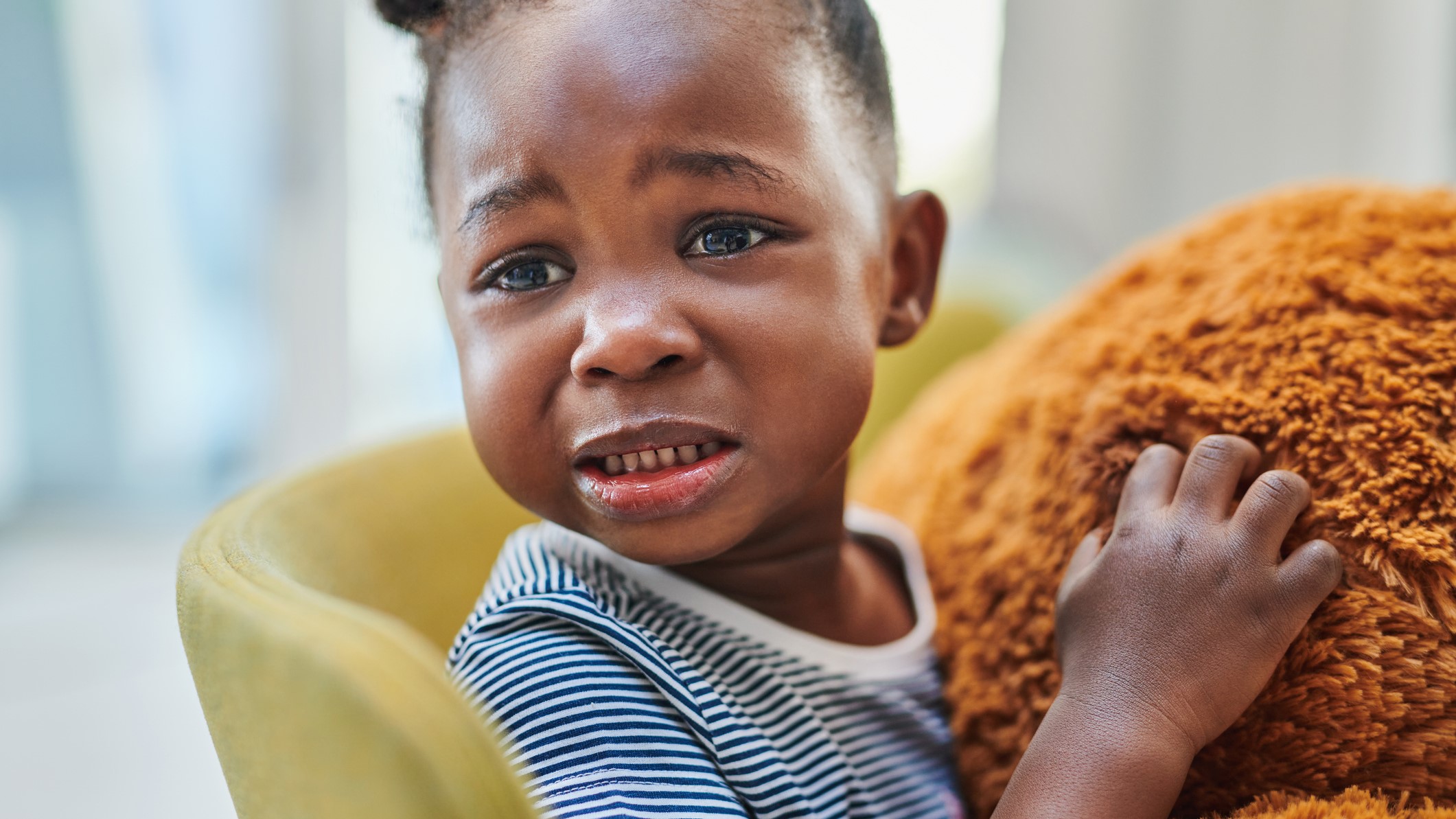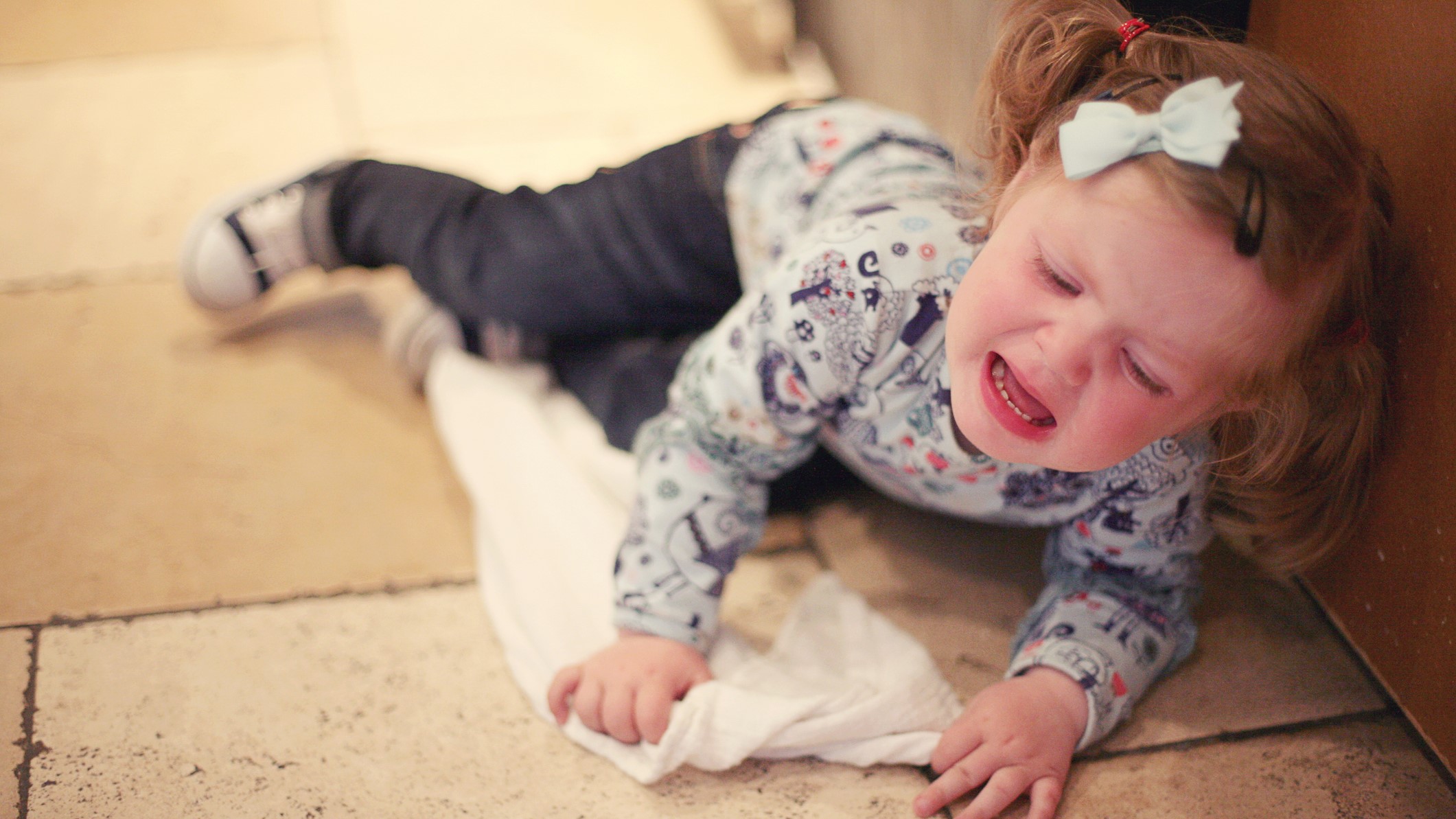How to handle tantrums in toddlers or teens - child therapist reveals the 5 things to remember
Teaching kids how to navigate their feelings can be difficult, but it's incredibly important for their development

No matter your child's age, preventing a meltdown when something goes wrong can seem impossible. Fortunately, a child therapist has shared five crucial points for parents to consider when helping their kids navigate intense emotions.
Some people may refer to tantrums as meltdowns, but the term 'meltdown' has different meanings for parents of neurotypical and neurodiverse children. For parents of neurotypical kids, it often refers to big, emotive tantrums, while for those with neurodiverse or SEN children, it can describe a child who's 'zoned out' and unresponsive to their environment. This article focuses primarily on the former—those intense emotional outbursts that can leave parents helpless.
Tantrums happen and they don't mean your kid is broke of you're failing as a parent. We speak to psychotherapist Deborah French who agrees, she tells us that "tantrums are an important part of how our kids develop." Grappling with overwhelming feelings is challenging for everyone, especially if you're also wondering how to deal with a lack of sleep as a new parent. While we as adults have the tools to spot the signs of parental burnout and step back from tense situations, children are still learning these vital skills.
It's crucial to recognise that kids, from toddlers to teens, process sadness, stress, and frustration differently. Parents play a key role in teaching them how to handle these big emotions effectively – a particularly important task for those supporting a child with explosive emotions. In this article, we look at ideas and tips to help you through the tantrum season of parenting.
Why do tantrums happen and what can parents do about them?
For parents struggling to deal with the outbursts, child therapist Jess, known as Nurtured First Parenting on Instagram, has taken to social media to share the top five things that make a child 'more likely' to have meltdowns and revealed what parents can do to support their kids through them.
A post shared by Jess | Nurtured First Parenting (@nurturedfirst)
A photo posted by on
"From a developmental perspective, our kids need to have meltdowns. This is how they release feelings from their body and communicate their needs to us," she explains. "Our job is to be their leader, guiding them through their meltdown and teaching them how to cope. This doesn’t happen overnight. It takes repeated exposure to our calm."
5 reasons why kids have tantrums
Jesss shares the top 5 reasons why your toddler is having a meltdown.
Parenting advice, hot topics, best buys and family finance tips delivered straight to your inbox.
1. Time away from their attachment figures
"If your child hasn't had quality time with you or their other caregiver, they may have more meltdowns as a way to communicate that they need to feel close to you," says Jess.
2. Transitions
Jess explains that a child going from one fun activity to the next can often cause a meltdown as they "don't have the ability to hold two truths at the same time." She explains, "What this means is they can't think, 'I love playing at the park AND I really should go home and eat lunch.' Their brain will latch onto the thing they are already doing and enjoying."
3. Overstimulation
"Lights, sounds, textures, tastes - all of this can start to overload your child's nervous system," says Jess. "When it all becomes too much, they'll need to release this from their body."

4. Not feeling like they are being heard, seen, or understood
Jess explains that meltdowns are often a way for children to communicate something to a parent, and they'll "often get louder and louder" if they feel they are being ignored.
5. They are hungry, sick, or tired and need support
These are the most common reasons kids have meltdowns, according to Jess, as these factors make it harder for little ones to regulate their nervous system and it can lead to "big emotions."
So how can parents teach their kids the best way to handle their big emotions and, hopefully, avoid meltdowns in the future? Jess says you need to learn how to 'co-regulate.'
"Co-regulating looks like lending your child your calm," she explains. "[It is] Modelling to your child how you want them to eventually respond to their own emotions. This can be tough to do, especially if you never learned this as a child."
Are tantrums developmentally necessary and when are they most likely to happen?
Psychotherapist Deborah French says tantrums are an important part of how our kids develop, "Tantrums are the first assertion of independence and a critical opportunity for a child to learn how to self-regulate, a skill that will be utilised repeatedly throughout their lives."
Though tantrums are described as the 'terrible twos', Deborah says they tend to begin at around two and half years old, escalate at age three, start to wind down by three and a half years old, and most certainly be finished by the time your child is four years old. "Tantrums happen at this stage because children are transitioning through a developmental shift from toddlerhood to a young child," she says.

However, there is a wide range of 'normal', so try not to worry if your child has tantrums before or after this time. According to Temper Tantrums by development paediatricians Laura Sisterhen and Paulette Wy, they can start as early as 12 months. Here's how common tantrums are at different ages, according to their research:
- For toddlers aged 18 to 24 months (1.5 to 2 years): 87 out of 100 children have tantrums.
- For children aged 30 to 36 months (2.5 to 3 years): 91 out of 100 children have tantrums. This is the peak age.
- For children aged 42 to 48 months (3.5 to 4 years): 59 out of 100 children have tantrums, but tantrums start to decrease at this age
As for how often they happen, a large-scale study in 2022 of over a thousand children from 3 to 5 found that 83.7% of kids had had a tantrum in the previous month.
A 2012 report found that up to 7% of children between 12 months and three years of age had at least three tantrums in the past week, while a later study in 2016 found that tantrums are common in 1 to 4-year-old children and can occur 5 to 9 times per week on average, with a duration of around 5-10 minutes each time.
The upshot of all this research suggests that however many tantrums your child has, they're likely to be within a normal range for their age group. And although it can feel like you're completely alone in dealing with a child who likes to stomp, cry, push, hit or kick during their tantrum, thousands, if not millions, of parents are going through exactly the same thing.
Is it okay to ignore a tantrum?
"In order to answer this question, we need to understand the context of ignoring and its role," says Deborah. "As parents, we have two hats: unconditional love and facilitator. Unconditional love means that 'as your parent, I have your back through everything. There is nothing you can do that would change that, even when things get tough. The facilitator means, 'What do I need to do now? How do I need to react as a parent to prepare for the next time - what do I want to help my child learn how to improve (even in the smallest way) in terms of behaviour the next time we have a tantrum? "
Deborah gives an example of how to take on both these roles in a situation commonly faced by many parents on a daily basis. "If my child asks me for water and I give them water in a blue cup and they look at it and start stamping their feet saying they don't want a blue cup; they want a red cup, both hats come into play. On the one hand, I love my child, and on the other hand, I'm not playing yoyo with cup colours because this is how it begins, and next, it will be an orange cup. So I'm going to facilitate an expectation so that my child learns what happens next time when they want a cup of water.

"Therefore, the response is as follows (in a calm, stern voice): 'Here is a cup of water. If you want it, take it. If you don't, you're welcome to scream about it, and when you're done, come and let me know.'
"The parent pays no attention to the following tornado that will be released, lasting up to 45 minutes. At this point, the child will finish and come to the parent and say, 'I've finished'. To which the parent responds (unconditional and facilitator hats both at play) 'I love you very much and you are a fantastic young person. I don't have a problem getting you anything you need. (Sterner voice) But we don't scream and shout in this house, understood? Good, off you go'."
Deborah reminds us that the key to managing tantrums and setting these expectations is to ignore negative behaviour, such as screaming and shouting. But it's just as vital to 'debrief' your child after the tantrum has finished. "We never just carry on after when the child is calm without what I call a debrief," she says. "This reminds the child of your love and respect for them, but it also clearly establishes what is acceptable and what isn't in terms of tantrums moving forward."
"The result is that the tantrums will continue throughout the toddler years because developmentally, they have to, but the duration and intensity will reduce and then stop completely."
What about teenage tantrums?
Let's be honest: tantrums don't end with toddlers. Teenagers have tantrums too and these outbursts of anger can be even more overwhelming than those experienced in their infant years. Shouting, screaming, withdrawing from you, and even violence can all occur.
According to the website Empowering Parents, teen tantrums are symptoms of a struggle to transition from childhood to adolescence and a fight for independence from you. Here are their top six tips for managing teen tantrums when they arise:
- Teach trust: Show your teen how building trust leads to more freedom for them.
- Teach positive influence: Coach them on how to communicate effectively to get what they want, instead of getting angry.
- Reward good behaviour: Praise your teen when they handle disappointment maturely.
- Understand the teen mindset: Recognise that self-centredness and entitlement are normal in a teenager's brain.
- Look for underlying stress: Have a think about whether their tantrums are about something deeper than the issue at hand.
- Encourage open communication: Talk about non-controversial topics with your teenager to build a good foundation for harder conversations.

Family Lives advises what to do if your teenager's tantrums become aggressive or violent. If you're worried about your teenager's mental health, talk to your GP or contact the Young Minds parents' helpline on 08088025544.
Featured expert

Deborah French MSc is a psychotherapist specialising in Cognitive Behavioural Therapy. Equipped with both formal qualifications and years of hands-on experience with clients and her own neuro-diverse children, she treats all types of anxieties for women and children. Deborah’s work includes a unique crisis intervention programme that she developed to help parents navigate childhood behavioural problems, including how to neutralise aggressive outbursts as they happen. With a special focus on children with Autism Spectrum Disorder and associated behavioural and communication challenges, she guides parents facing ineffective communication and disrupted family dynamics.
In other family news, giving teens ‘space and opportunity’ to be independent helps them thrive according to an educator - here’s 3 top tips to get started. Plus, do you get your kids’ names mixed up? Psychologist reveals why your brain makes this ‘common glitch’ and it’s not the reason you think. And a parenting expert shares the one ‘emotional habit’ that can affect kids’ ‘security’ and ‘trust in themselves’ and what parents can say and do instead to break the cycle.
Charlie Elizabeth Culverhouse is a news writer for Goodtoknow, specialising in family content. She began her freelance journalism career after graduating from Nottingham Trent University with an MA in Magazine Journalism, receiving an NCTJ diploma, and earning a First Class BA (Hons) in Journalism at the British and Irish Modern Music Institute. She has also worked with BBC Good Food and The Independent.